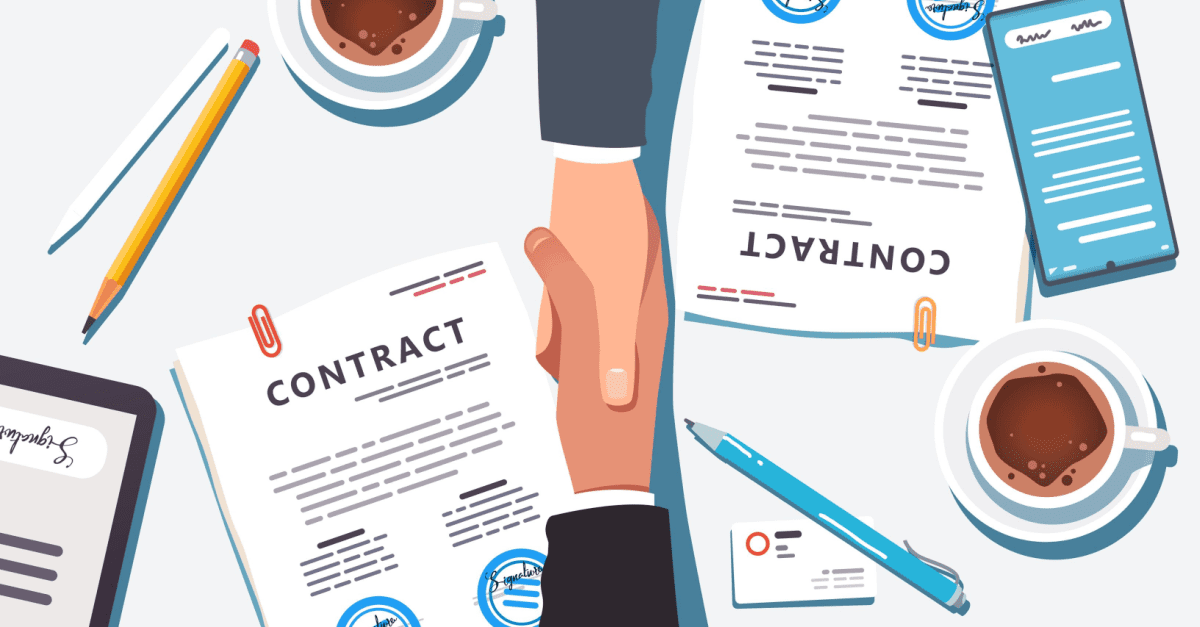
We all take measures to make sure our homes, cars, lives, jewelry, and even appliances are insured, and if we pay money to insure those items in our life, what would it be worth to you if you could have insurance on your time, your ability to persist and follow through effectively, and on closing your next deal?
What if it cost you nothing, and you just had to learn a few simple questions to ask?
Let’s write you up a policy right now:
Sales Insurance Policy #1: “If I, Will You?” (Insurance on Your Time)
Do you know you can gauge your clients interest by how willing they are to invest in the process of getting you what you need?
Think about it like this:
Client #1 calls you and their machinery is stopped until they get the correct part from me.
As long as their machine is stopped they’ll give you their ATM card and pin in 2 seconds!
You’ve been calling on client #2 who is happy with their current supplier for 3 months.
They continue to tell you yes, but you never see what you need.
You see the obvious difference in the two scenarios: the need for what you are offering.
A little trick you can use is to probe to test how much they are willing to do to help.
If they aren’t very helpful in what I need, then that tells me their interest level is low (That doesn’t mean I don’t take further action, it’s just a mental “heads up” for myself which I might later as I collect evidence for further down the road if I have to make that tough decision to keep going or cut bait).
That brings us to the question you ask to insure you are not wasting your time and it plays off the “Law of Reciprocity.”
The LOR states that if I do something for you, you will naturally be inclined to return a favor.
Is it selfish? Not if I give you something you want.
Is it manipulative? Not if I give you something you want.
Is it fair? Not if I give you something you want. (ok…I’ll stop there)
It really is just a play on human nature.
You continually want to know that you are getting a good R.O.T. (return on time), and the safest way I have seen to do that is by asking your client “If I, will you? questions.
Here are some examples:
“Mr. Stevens, if I can show you savings on your top 3 items, will you give me just 10 minutes to come by?”
“Mrs. Clark, if I can provide a payback on your investment of less than 3 years, will you jump on a quick webinar with me?”
“Jack, if I show you a solution that increases your operating efficiencies by 20%, will you be willing to jump on a quick 10 minute telephone call with me?”
The time to ask for what you want is before you give them something.
Now not only have you earned the right to ask, but you are more likely to get the outcome you want.
Think about your chances if you were just to call up your prospect and say, “Mike, how about 10 minutes next Wednesday?”
Blah, blah, blah. Give them value first.
If after I offer up my, “If I, Will You?” and the answer is “no,” then I immediately know I need to be very careful with my time.
The beauty of this question is you can use it in so many different situations….just be creative and enjoy the results.
Sales Insurance Policy #2: “If I don’t hear from you (or receive ‘x’) can I follow up with you on x?” (Permission to persist)
Three very interesting points I’ve discovered around this issue of persisting:
1. Many more sales people than I originally thought quickly back away if a prospect doesn’t return their calls or requests as they said.
2. A high number of sales people don’t want to “offend” by being a pest.
3. Research shows sales people quit to early.
Yep. I couldn’t believe it myself! I don’t have all the details of the study because you don’t need them.
All you need to know is that it took sales people at least 5 touches to land the majority of new clients.
Interestingly, the study revealed that only 6% of sales people actually stay in the process that long to get the deal! In fact, only about 50% of sales people made more than two calls.
Two critical points:
1. Sales people need to be prepared to persist.
2. Sales people need to give themselves permission to persist as they long as they think it is worth pursuing.
So, let’s break down the issue here with some solutions for you:
THE PROBLEM:
I call it, PRESENT INTENTION vs. FUTURE REALITY
You’re with a friend you haven’t seen for over a year. Before you leave, the conversation goes like this:
You: “OK, well we have to do this more often. I had a great time.”
Your friend: “Definitely. I’ll call you in a couple weeks and we’ll get together!”
You both leave thinking that you had a great time and that you’ll get together again, and the funny thing is, both of you actually, at that moment want to get together again.
But the future reality of that happening is about as likely as me dancing with the Jackson Five.
Perfect example of what I call, “PRESENT INTENTION vs. FUTURE REALITY.”
We all agree to do things when we are “in the moment” and our clients are no different.
If we take their word at face value and forget about PI vs FR, then you’ll have to deal with being a pest (I just consider it following up)…unless you use the ‘answer’ and sell using ‘the rule.’
ANSWER: ALWAYS GIVE YOURSELF PERMISSION TO PERSIST
I don’t care how much you trust them, ask the question:
“I appreciate that Mike, and if I don’t happen to see it, say by the end of the week, I’ll give you a quick reminder call on Monday. Is that OK?”
RULE: ALWAYS ASSUME PEOPLE WON’T DO WHAT THEY TELL YOU THEY WILL DO.
That’s how I protect myself from forgetting to get my insurance.
Many sales people I’ve shared this with laugh at me and say, “Man, you sound jaded. You must be from New York!” (ha ha).
No…but I sold there. It’s not about a lack of trust in other people, rather, it’s about living by a rule so you always protect yourself.
So if “it” doesn’t happen you still plow forward. Then my follow up call sounds something like this:
“Linda, you asked me to follow up with you today if I didn’t see the list of products to bid on. I know you have nothing else to do….(laugh) and get new commitment.”
Now it’s on them not getting me what they committed too, and NOT about me being an annoying sales person.
I don’t know about you, but I’d be retired in Jamaica right now if I had .07 cents for every time someone told me I’d have something by…..
Sales Insurance Policy #3: “What happens next?” (Insurance against the unknown closing stall)
What clients think they will do versus what they will ACTUALLY need to do are sometimes two completely different things.
Give me a “yep” if you’ve ever thought you had the deal wrapped up to only hear, “I just need to get buy-in from my boss.”
I heard a lot of “yeps.”
Or, “I just need to check our current contract and make sure there are no binding legal obligations for us to move forward.”
WHAT? Why didn’t you tell me that!
As sales people there’s nothing more frustrating than the “hidden objection” and a very effective and simple way to help protect against that is to have the client actually think through what they will have to do.
There’s additional, uncovered, unknown hurdles so often and this question helps them tell you what they might not be thinking about.
“So, Jennifer, If the pricing proposal meets the expectations we just outlined, what happens next?”
“Ben, if the proposal does return your money in 6 months, what’s next for us?”
Basic? Yes. Commonly done? No.
Making them actually think through the process is magical, and it will show you how close you really are, and if this is truly an opportunity you want to keep pushing and how hard.
Whether I’m addressing a team of five sales people or 500 there are always way too many professionals selling without fully covered insurance policies.
Given the potential consequences and costs, you would think this would be a no-brainer, right?
About the author
Mark Heerema
“Mark is nationally recognized for his work in debunking unchallenged, long held sales myths…
Get FREE Sales Training Delivered to Your Inbox
Join more than 360,000 professionals who get our weekly newsletter.

Learn Online
Self-paced courses from the
world's top sales experts

Virtual Training
Live, interactive instruction in small
groups with master trainers

Coaching
One-to-one personalized coaching
focused on your unique situation






